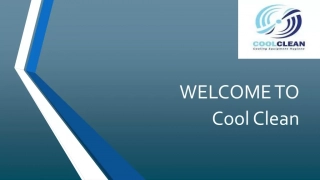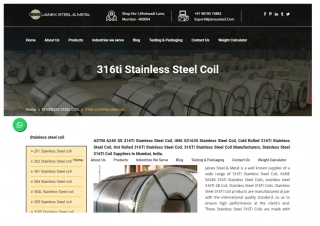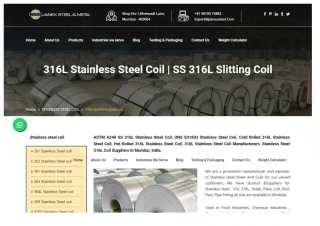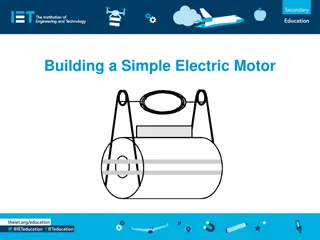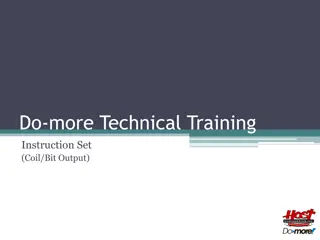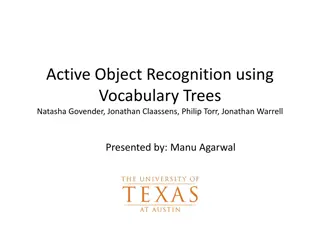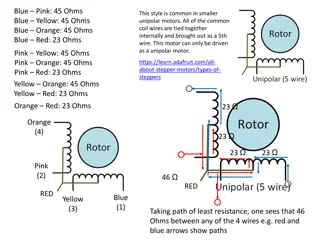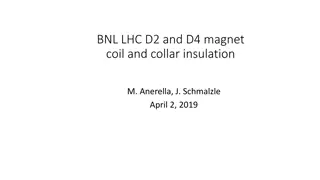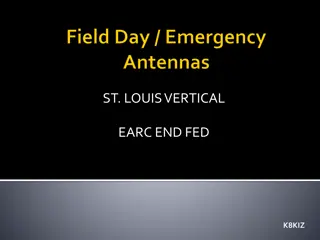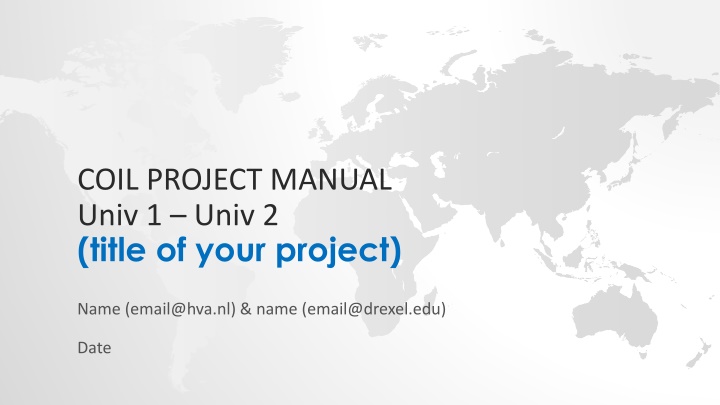
International Collaboration Project Manual for Entrepreneurship Studies
Experience Collaborative Online International Learning (COIL) through a project focusing on entrepreneurship trends impacting the Netherlands, the US, and globally. Engage in cross-cultural teamwork, research trends, compare practices, and analyze implications. Enhance skills for the 21st-century workplace.
Download Presentation

Please find below an Image/Link to download the presentation.
The content on the website is provided AS IS for your information and personal use only. It may not be sold, licensed, or shared on other websites without obtaining consent from the author. If you encounter any issues during the download, it is possible that the publisher has removed the file from their server.
You are allowed to download the files provided on this website for personal or commercial use, subject to the condition that they are used lawfully. All files are the property of their respective owners.
The content on the website is provided AS IS for your information and personal use only. It may not be sold, licensed, or shared on other websites without obtaining consent from the author.
E N D
Presentation Transcript
COIL PROJECT MANUAL Univ 1 Univ 2 (title of your project) Name (email@hva.nl) & name (email@drexel.edu) Date
CONTENT (EXAMPLE) Introduction page 3 Topics page 4 Project Description page 5 Method of Working page 6 Learning Objectives Group Geliverable page 8 Deliverables: Advice Report & Presentation page 9 Learning Diary & Learning Objectives LD page 10 & 11 Weekly Schedule page 12 Practical Information: Deadlines, Assessment, Literature page 13-15
INTRODUCTION (COIL) What is Collaborative Online International Learning (COIL)? COIL, also referred to as virtual collaboration, is a new teaching and learning paradigm that promotes the development of intercultural competence across shared mutual learning environments. A COIL is specifically designed to link students who have different cultural and geographical perspectives and experiences. Students engage in learning both through their own cultural lens as well as by exchanging their cultural lenses as they move through the course content and assignments together. Students reflect with each other, thereby facilitating a cross- cultural dialogue that brings a global dimension to the course content. (SUNY COIL Center). In this module, you ll experience first hand what international and virtual teamwork is like, you ll develop collaboration, communication and cultural sensitivity skills necessary to thrive in the 21st Century workplace.
TOPICS (SPECIFIC TO YOUR PROJECT) Working in cross cultural teams of XX and YY students, each team will (explain topic idea) explore one of the following trends and the implications for entrepreneurship in the Netherlands, the US and globally: The growing trend towards social entrepreneurship -- using the structure of entrepreneurship to solve societal problems. A for-profit company with a social mission. Examples: TOMs shoes; Cisse Cocoa; Tony Chocolonely; Vandebron Need for and emphasis on sustainability Population changes: urban vs rural shifts, aging population, etc. Millennials, technology and the role of influencers
PROJECT DESCRIPTION (EXAMPLE) Assignment: You work in an international team with representatives in Amsterdam and Philadelphia. As a team you have been asked to research and report about the impact of certain trends on local and international (social) entrepreneurship. (For topics, see previous page.) Research: Implication of Trends Describe the trend, reasons for the trend, background Compare and contrast trend within the Netherlands and the US Research and describe two best practices * with reference to the trend and entrepreneurship in each country -- compare and contrast -- apply interview with entrepreneur in each local context What is working in your country and why? What won t work in your country and why? What do entrepreneurs need to do with reference to this trend? Share with your interviewee Implications of trend on workplace *best practice - commercial or professional procedures that are accepted or prescribed as being correct or most effective
Method of working: (1) You work in small teams (2 students in Amsterdam are connected with 2/3 students in Philadelphia). Working in smaller teams ensures all members have an international experience and facilitates more efficient collaboration and communication. You submit your deliverables as 1 team. Each university will use it s own LMS. For AUAS that s Feedbackfruits and for Drexel it is Blackboard Learn. Students will submit the required assignments (Project Plan, PPT Presentation and Final Report) on their own LMS. You work on the assignment using various online tools such as social media networks, video conferencing tools (such as Skype or Zoom) and other platforms that enable working on common documents. You are free to choose the online tools that strengthen and improve your team work. To get better acquainted, this secret Facebook group has been created: we encourage you all to use it and share stories and images about your culture. Classes will be provided both offline, in your respective universities, as well as online. The lecturers of this module, XXXX, will be available for consultation both off-line and online on specific timeslots.
Method of working: (2) In the course of 6 to 7 weeks, you will work as one international and virtual team. Your team members are located in different places, enabling them a unique perspective on the local context. The students in XXX will have a weekly class on Tuesday afternoon (Tuesday morning in the US). The YYY students are enrolled in a blended course, taking place on- and offline. YYY students will be invited to virtually attend 1-2 classes if they are available. The teams work in their own time, both synchronous (video conferencing) and asynchronously. Managing sufficient face-2-face time is one of the key success factors of this project! There will be various coaching sessions in which the teams can consult with the lecturers on the content as well as the process of the project. Specific Skype coaching sessions (per team) can be arranged when needed. The project will wrap up in week 6 with a presentation in which the teams deliver their results. This presentation will be done I class in XXX (with optional participation that day by YYY students if available).
Learning Objectives (for this project specifically, what are the shared LO s ?) 1) Students can analyse a culturally related topic of their choice in relation to their national culture and in comparison to a foreign culture, thereby creating new solutions and ways of thinking. 2) Students can create an advice (report and presentation) about said (global) topic which demonstrates critical thinking, commercial value and creativity. 3) Students can critically analyse the challenges and trends of a given global topic and they can design an advise to be used in a professional setting.
Goals of virtual collaboration sessions Get acquainted with team members and local context Discuss the project and project goals Share ongoing research and findings with the team Review next steps in project Assign work for next week within team Reflect on team process
GETTING ACQUAINTED (WEEK 1) To become a successful remote team, you need to build report and trust within the team. How? By getting to know each other! Join the Facebook group page: XXX Upload some pictures or a short video of yourself in which you share something about yourself: where and how you live (alone, with family ), what you study, your favorite food/sport/Netflix series/etc. and what you like best about your university or city. (If you choose pictures, write a short text too.) Don t just read or watch the uploads of others. Comment, ask questions and engage! If you wish, you can limit your curiosity to those people in your team. The idea is to know who you re working with AND also to learn about each other s culture: what is Amsterdam and Philadelphia like?
DELIVERABLES First deliverable: Project Scoping and Planning, deadline week 2 Develop a Project Plan: Project description: what are you doing? What are the team objectives? Goals Team organization: o Resources, including time and meeting frequency (timeline) o Communication and collaboration tools Expected challenges and plan on how to deal with them 1 to 2 page document
DELIVERABLES (CONTINUED) Second deliverable: Power Point presentation of your findings Background information about the trend and its local context. Research question (what were you curious about in both countries?) and research approach (how did you go about it?) Initial findings, things that stand out and might impact entrepreneurship and the workplace in the 2 countries Next steps (for the report) PPT presentation is to be presented verbally in Amsterdam (with optional participation from Drexel students that day). Feedback will be provided by both lecturers.
DELIVERABLES (CONTINUED) Final Deliverable: Team Report Your team report is your final project component. It is a collaborative document (one per team) and includes the following sections: Team Members Your team s trend topic and description, background, other information about the trend Synthesis of your research of the trend and implications for entrepreneurship and the workplace in the Netherlands, US and elsewhere, if appropriate, including the insight of your local entrepreneur -- putting all the information together that you explored in this project together -- what are your conclusions? GC/COIL Project Reflections -- in this project and within your team o What worked best in terms of working with your teammates in the Netherlands and the US? o What did not work? o What did you learn about working with people of other cultures? o How does a COIL team reflect teamwork in the workplace? (Hint: think about skills, experience, resources and diversity) o What would you do differently next time? Your report should be 3-5, double spaced, 12 point font. Include sources on a reference page according to APA format (to practice APA!) reflections section and the reference page is in addition to the 3-5 pages of text.
week Topic & Milestones 1 & 2 Deadline Date w/o April 16th Deadline Project Plan: April 27th 11.59 (23.59) PM EST WEEKLY PROGRAMME Getting to Know You Exchange personal and contact information 1st online synchronous session Project Plan W/o April 30th is a holiday week in Amsterdam Entrepreneurship in your community and local culture 3 w/o May 7th 4 Research of trends and local interviews with entrepreneurs w/o May 14th 5 Comparing findings of research and local interview with entrepreneur w/o May 21st 6 PowerPoint presentations May 28th 11.59 (23.59) PM EST 7 Deadline for report and group reflection AUAS: Deadline Learning Diary & Essay Drexel: Final Personal Career Plan June 8th 11.59 (23.59) PM EST June 26th June 18th

